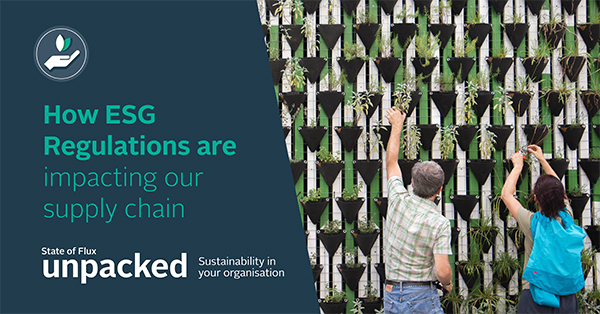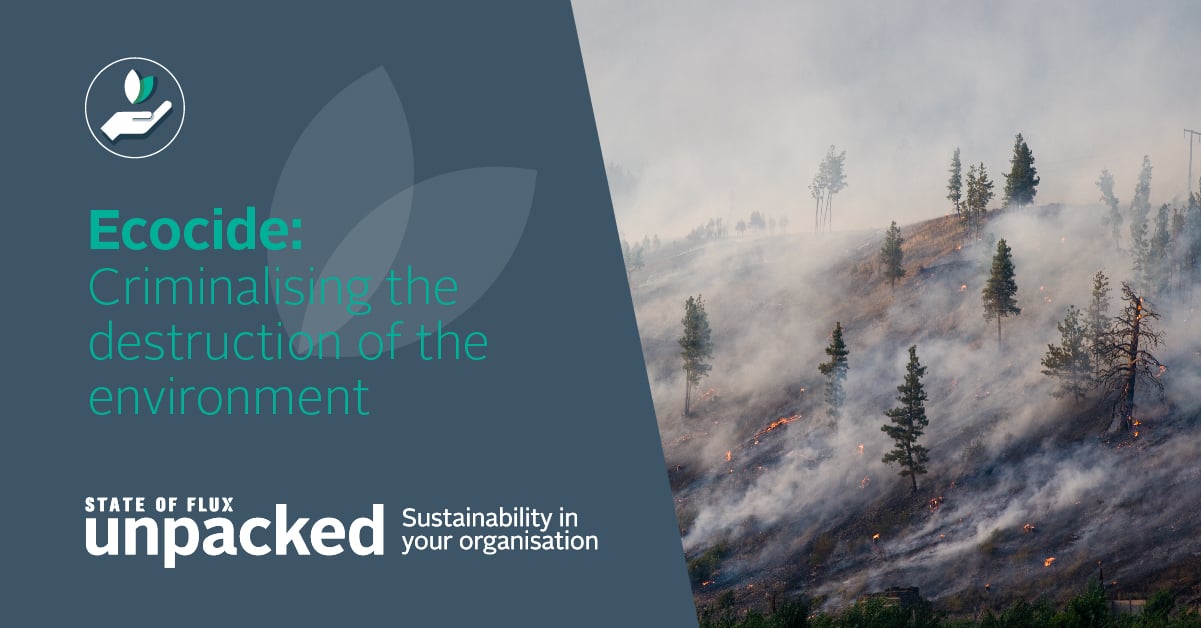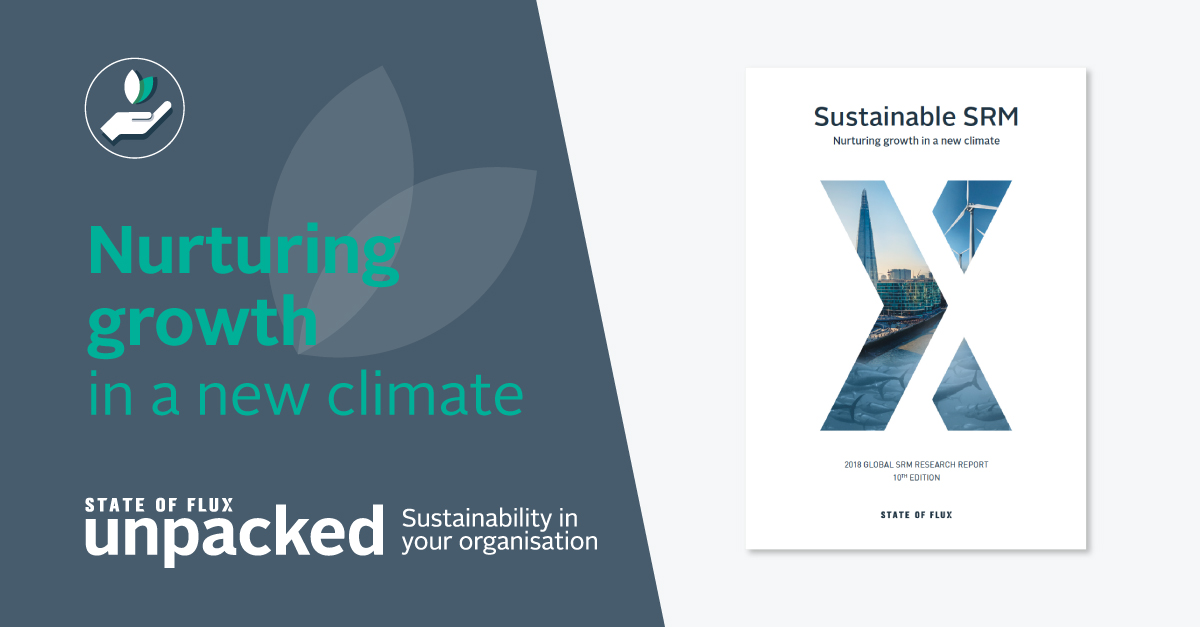NAVIGATING MODERN SLAVERY IN AN INCREASINGLY GLOBAL SUPPLY CHAIN
The complex and somewhat secreted landscape of modern slavery can be a great challenge to navigate within international organisations. As the world becomes increasingly interconnected, a greater duty of care is required to ensure a slavery free supply chain. This article aims to aid the reader in comprehending the differing reporting obligations of global modern slavery legislation through the lens of supplier management. The guidance in this document is not intended as official legal advice, but designed to offer advice and clarity on how to effectively approach the issue of modern slavery in the supply chain.
What exactly does modern slavery mean for your organisation?
With over 40 million victims of modern slavery worldwide1, it is becoming ever more critical for investors and multinational enterprises (MNE’s) to be proactive on this issue. In a time where consumers are placing great value on purpose, the business case is even more compelling to eradicate slavery from the supply chain. According to a 2020 Accenture study2, more than half of young consumers have shifted a portion of their spend away from companies that have disappointed them with their words or actions on a social issue. Furthermore, an array of stringent new legislation is coming into force worldwide. Whilst this does present new challenges to company executives, it also provides an immense opportunity to come together and tackle the plight of the most vulnerable individuals in our global supply chains. Despite the demand, the complex causes and solutions surrounding modern slavery leaves many executives perplexed at how to tackle the issue – the insidious nature of modern slavery means that it is hard to detect and eliminate. Therefore, many questions linger about what exactly these regulatory and cultural changes might mean for your organisation, your suppliers, or your investment partners. This has created a great demand for expertise in modern slavery from a supplier management perspective.
The impact of recent legislation
Legislation has the tendency to follow a similar pattern to consumer trends – a few outlying ‘pioneers’ are used as a springboard for ‘major players’ to catapult a trend into the mainstream. As the issue of modern slavery reaches the forefront of international scrutiny, an array of new legislation is being produced within a relatively brief time period. These new regulations can seem daunting to corporations with international supply chains.
Whilst many laws such as the ‘UK Modern Slavery Act 2015’ have been deemed ineffective, the Australian government's Modern Slavery Act 2018 (AMSA) is regarded as more of a ‘pioneer’ for modern slavery legislation. Despite the AMSA specifying requirements for reporting risks and remediation, there are still areas of ambiguity concerning which firms and investors qualify as a 'reporting entity' and to what extent they must report (the regulation is mandatory for organisation with turnover in excess of $100m). Even after the accounting principles are exercised, the entity should then decide what counts as a risk necessary to report - this could include whether it's in the "supply chain" or "operations" function. Such ambiguity raises many questions surrounding supplier management. Only a few years after the introduction of the AMSA, the European Union has drafted a legislation on ‘Sustainable Supply Chains’ which aims to tackle such complications and become more sensitive to the evasive nature of modern slavery breaches. This proposal applies to all companies established or operating within the EU regardless of size or turnover, and will incur adequate penalties. For multinational enterprises who operate in both regions, the influx of regulations is a time-consuming and intricate issue that requires expertise.
4
Staying ahead of future legislation
Whilst the EU legislation is substantial and comprehensive, there are still omissions and loopholes which need to be addressed in future legislation. One such oversight is the method of subcontracting through multiple tiers of the supply chain, this obscures tractability of modern slavery from the reach of most audits and prevents true corporate social responsibility. A recent legislation which tackles the issue of indirect suppliers is the German Supply Chain Diligence Act5 coming into effect in 2023. This obliges German multinationals to also carry out due diligence on their suppliers’ suppliers. The German confectionary industry (BDSI) have urged the incoming EU legislation to follow this template in order to trace modern slavery effectively6. Identifying these risks in your organisations supply chain will ensure you stay ahead of potential future regulations.
Addressing the challenge
One of the critical challenges around these incumbent legislative acts is lack of knowledge and expertise, both around what modern slavery looks like and what incorporates a ‘best practice’ approach. Without definition, 'best practice' varies significantly depending on the industry, firm size, culture, and geographic context. However, there are some commonalities between ‘leading’ firms on how to combat the issue – these include a structured approach, third-party engagement, and extensive education.
With an approach backed by thirteen years of world-leading proprietary research, State of Flux are experts in managing supplier risk. We help our clients conduct risk assessments and facilitate discussions in order to approach modern slavery in their supply chains. With a global team spanning three regions, State of Flux is well positioned to consult both multinational and regional organisations on the modern slavery risks in their supply chain. Please reach out to State of Flux for more information regarding these recommendations and to help provide your organisation with a starting point on how to tackle specific modern slavery issues you may encounter when conducting business.
References:
- Modern slavery and child labour: 40 million in modern slavery and 152 million in child labour around the world (ilo.org)
- Five reasons why you should prioritize supplier diversity as part of your sourcing strategy (accenture.com)
- How many people does human trafficking impact? (dressember.org)
- Modern Slavery Act: What businesses in Australia need to know | Australia | Global law firm | Norton Rose Fulbright
- Germany obliges companies to monitor human rights in their supply chain (pinsentmasons.com)
- Planned EU supply chain law should follow German model, says Confectionery Association (confectionerynews.com)

AUTHOR - Cameron Jeffery (Analyst)
Cameron is an analyst in our EMEA team and has supported many of our clients on their SRM journey, whilst also helping drive internal development across sustainability and social value. Prior to joining State of Flux in 2021, Cameron received his undergraduate degree in Economics before achieving an MSc in International Development and Security at the University of Bristol.
DON'T STOP THERE...WE HAVE MORE CONTENT FOR YOU

The Eco-Billionaire

ESG Regulations impact

Supplier Collaboration The Carbon Trust case study
















